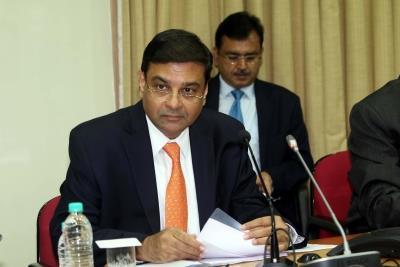
Centre Names Former RBI Governor Urjit Patel As IMF Executive Director For 3 Years
The government has appointed the new executive director for India at IMF following the abrupt termination of Krishnamurthy V Subramanian's services, which ended his term about six months short. Patel is known as a key architect of India's inflation-targeting framework for monetary policy.
Patel, a Kenyan-born Indian economist, had started his career in the IMF over thirty years ago. He worked at the International Monetary Fund for five years, starting in Washington DC before moving to India in 1992 as the IMF's deputy resident representative in New Delhi.
He became the 24th governor of the RBI in 2016, succeeding Raghuram Rajan. In 2018, he was the first RBI governor to resign for personal reasons, serving the shortest term since 1992.
Prior to that, he was the deputy governor of the central bank, overseeing monetary policy, economic policy research, statistics and information management, deposit insurance, communication, and Right to Information.
Before his stint as governor of RBI, Patel served as a consultant to the Ministry of Finance from 1998 to 2001. He held various positions in both public and private sectors, including Reliance Industries, IDFC Ltd, MCX Ltd, and Gujarat State Petroleum Corporation.
He holds a PhD in economics from Yale University, an MPhil from the University of Oxford, and a BSc from the University of London.
Patel's appointment to the RBI comes at a time when India's opposition to IMF bailout programmes for Pakistan has made headlines, with concerns raised about the potential use of funds for war and cross-border terrorism.
The IMF board had approved a $1 billion loan to Pakistan as part of a multi-year program totalling $7 billion worth of monetray support. Further IMF had also cleared a $1.4 billion credit line for climate resilience efforts, to be released in tranches.
Meanwhile, India's Special Drawing Rights (SDRs) with the IMF increased by $41 million, while the country's reserve position with the IMF rose by $15 million to $4.754 billion. These figures underscore India's growing financial buffer and its ability to withstand external shocks.

Legal Disclaimer:
MENAFN provides the
information “as is” without warranty of any kind. We do not accept
any responsibility or liability for the accuracy, content, images,
videos, licenses, completeness, legality, or reliability of the information
contained in this article. If you have any complaints or copyright
issues related to this article, kindly contact the provider above.


















Comments
No comment